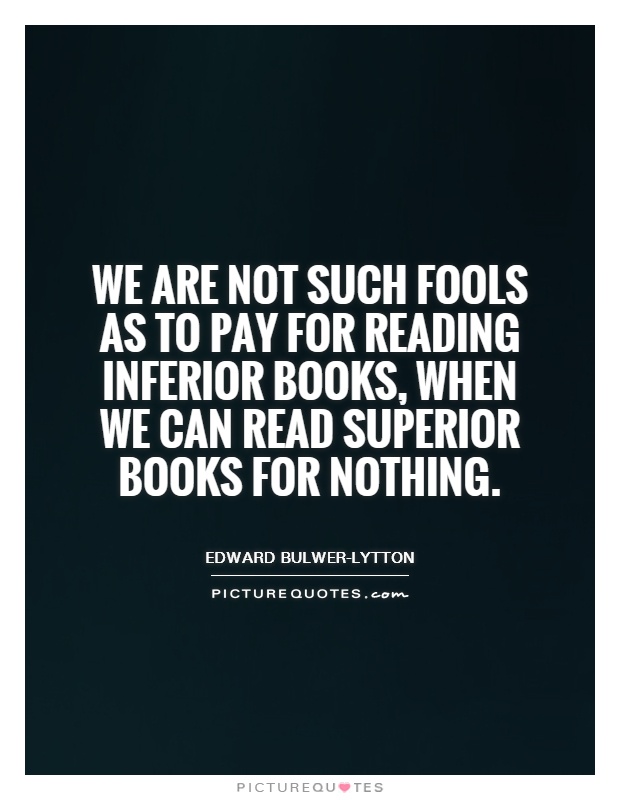We are not such fools as to pay for reading inferior books, when we can read superior books for nothing

We are not such fools as to pay for reading inferior books, when we can read superior books for nothing
Edward Bulwer-Lytton was a prolific and influential writer in the 19th century, known for his novels, plays, and poetry. His works were widely read and admired during his lifetime, and he was considered one of the leading literary figures of his time. However, despite his popularity and success, Bulwer-Lytton was not immune to criticism, particularly when it came to the quality of his writing.The quote “We are not such fools as to pay for reading inferior books, when we can read superior books for nothing” can be seen as a reflection of Bulwer-Lytton’s own views on literature and the value of good writing. As a writer who prided himself on his craft and the quality of his work, he likely believed that readers should seek out the best literature available to them, rather than settling for subpar or mediocre writing.
Bulwer-Lytton’s own writing was often praised for its vivid imagery, compelling characters, and intricate plots. His novels, such as “The Last Days of Pompeii” and “Paul Clifford,” were popular with readers and critics alike, and helped to establish him as a leading voice in Victorian literature. However, not all of his works were well-received, and some critics accused him of being overly melodramatic or sentimental in his writing.












 Friendship Quotes
Friendship Quotes Love Quotes
Love Quotes Life Quotes
Life Quotes Funny Quotes
Funny Quotes Motivational Quotes
Motivational Quotes Inspirational Quotes
Inspirational Quotes